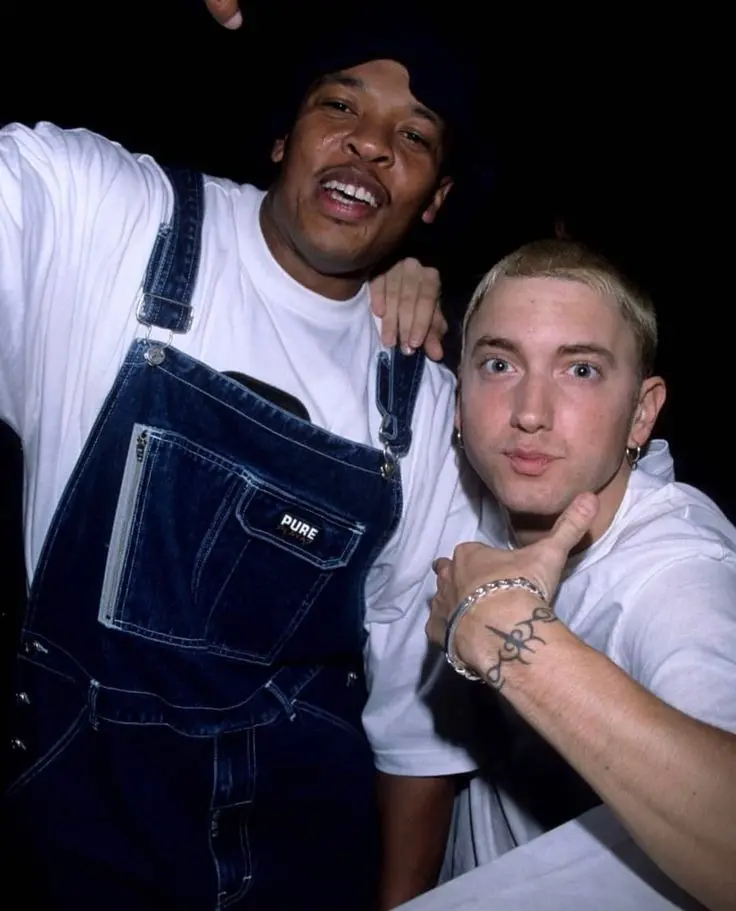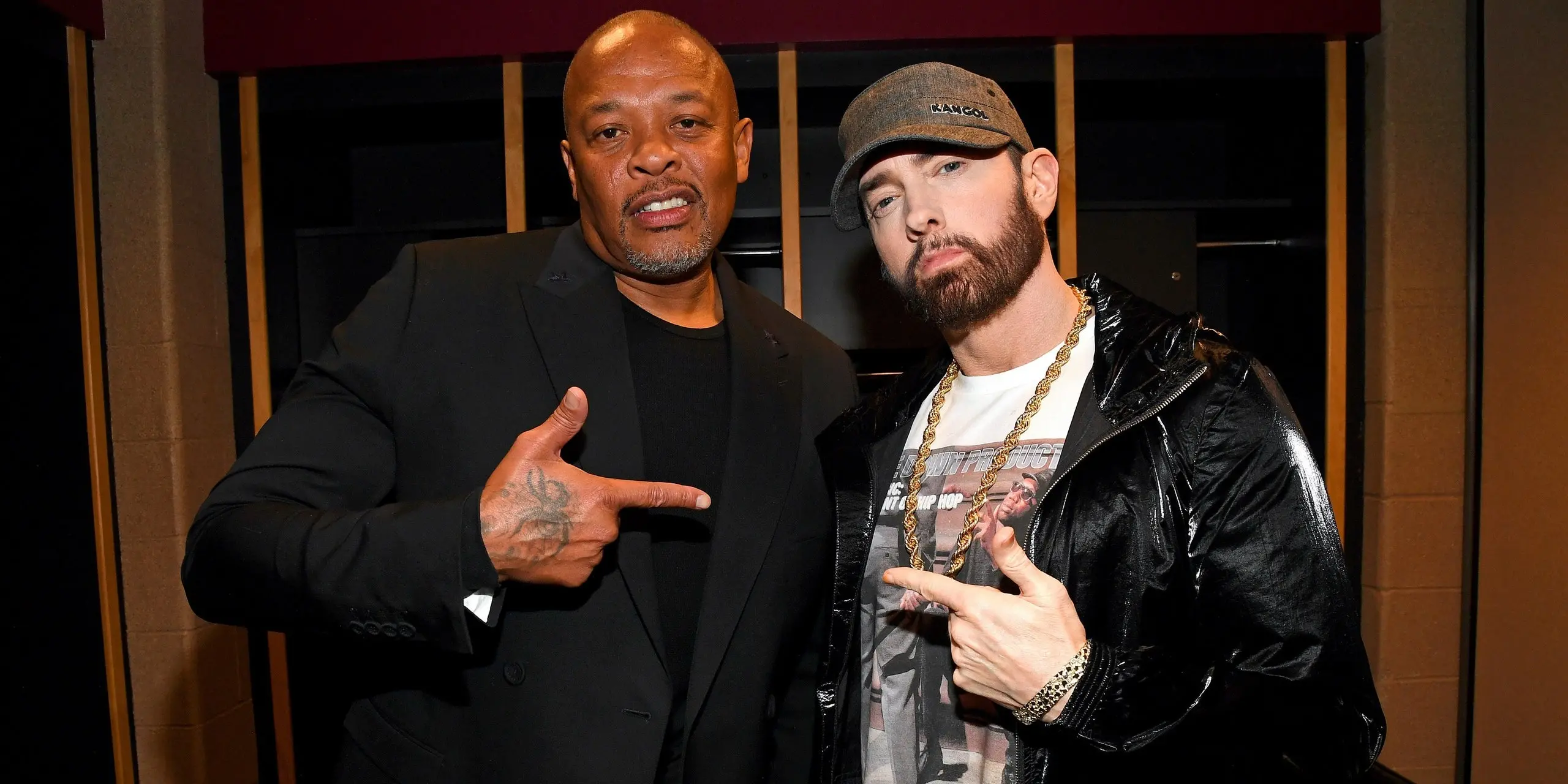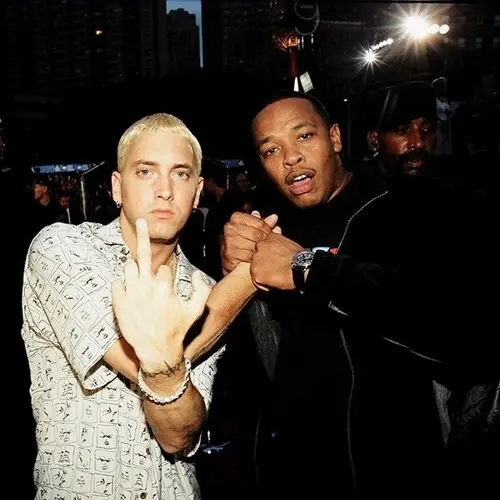In the vast and ever-evolving landscape of hip-hop, few figures have left an indelible mark as profound as Dr. Dre and Eminem.
The dynamic duo, mentor, and protégé have shared an unparalleled musical journey that has shaped the very fabric of the rap genre.
Recently, Dr. Dre, a luminary in his own right, made a bold proclamation that sent shockwaves through the hip-hop community – he declared that there is no other rapper who can beаt Eminem.

Dr. Dre’s assertion carries weight, considering his pivotal role in shaping the careers of some of the greatest artists in the rap industry.
From N.W.A. to Snoop Dogg, and later to Eminem, Dre has consistently demonstrated an uncanny ability to recognize and cultivate raw talent.
His partnership with Eminem, which began in the late ’90s, resulted in a musical alliance that would redefine the genre.
Eminem’s rapid-fire delivery, intricate wordplay, and unfiltered storytelling quickly established him as one of the most formidable lyricists in the game.

The statement resonates not just as a testament to Eminem’s skill but also as an endorsement of the rapper’s enduring impact on the culture.
Eminem, born Marshall Mathers, burst onto the scene with his alter ego Slim Shady, challenging societal norms and confronting personal demons with unparalleled lyrical dexterity.
His groundbreaking album, “The Marshall Mathers LP,” not only shattered records but also earned him critical acclaim, solidifying his place in hip-hop history.

Dr. Dre’s assertion sparks debates and discussions among fans and fellow artists alike.
While hip-hop is a genre built on competition and lyrical prowess, claiming that no one can surpass Eminem is a bold statement.
Eminem’s influence is undeniably widespread, with a global fanbase that spans generations.
His ability to seamlessly blend humor, introspection, and social commentary in his verses has set him apart as a unique and enduring force in the rap world.
Critics may аrgue that hip-hop is diverse, with a multitude of talented artists contributing to the genre’s rich tapestry.
From the gritty storytelling of Nas to the socially conscious rhymes of Kendrick Lamar, the landscape is filled with exceptional talent.
However, Dr. Dre’s proclamation emphasizes not just technical skill but the intangible impact that Eminem has had on the culture – a cultural resonance that transcends mere competition.
In the end, Dr. Dre’s words are a testament to the enduring legacy of Eminem in the realm of hip-hop.
Whether one agrees or disagrees with the claim, there is no denying that Eminem’s influence is deeply ingrained in the genre’s history.
The ongoing dialogue spurred by Dr. Dre’s statement only serves to highlight the richness and complexity of the hip-hop community, where opinions on the greatest rapper of all time will forever be subjective and open to interpretation.
News
What you didn’t know about Johnny Depp’s guitar skills.
Beyond the silver screen and the allure of Hollywood’s glitz and glamor lies a lesser-known facet of Johnny Depp’s life – his profound passion for playing the…
The subtle clues Johnny Depp gave us about AH’s true nature
Times Johnny Depp Tried To Warn Us Johnny Depp is a man who has had a very interesting life in ways that are both funny, and sad….
The controversial poster of pirates of the Caribbean 6 starring Johnny Depp
There is a new Pirates of the Caribbean 6 poster that has gone viral online with a movie title listed as Pirates of the Caribbean: Demons of the Corsair. The…
Johnny Depp celebrates Amber Heard victory with £50K Indian banquet
‘Once in a lifetime moment’ at the Varanasi in Broad Street, Birmingham Hollywood star Johnny Depp was joined by his musician friend Jeff Beck, 77, and around…
Johnny Depp’s ‘favourite’ curry house Varanasi about to open in Leicester
Johnny Depp who is reported to have said ‘it was the best curry he’s ever had!’ Varanasi, a popular Indian restaurant is expanding from it Birmingham branch,…
How Johnny Depp and Rod Stewart showed their love for animals with a song
Johnny Depp and Sir Rod Stewart joined forces over the weekend to raise money for an animal charity based in Lewisham. The duo performed at a private charity…
End of content
No more pages to load











